- Home
- Mary Hooper
The Betrayal
The Betrayal Read online
The Betrayal
MARY HOOPER
Contents
Cover
Title Page
Chapter One
Chapter Two
Chapter Three
Chapter Four
Chapter Five
Chapter Six
Chapter Seven
Chapter Eight
Chapter Nine
Chapter Ten
Chapter Eleven
Chapter Twelve
Chapter Thirteen
Chapter Fourteen
Chapter Fifteen
Chapter Sixteen
Chapter Seventeen
Chapter Eighteen
Chapter Nineteen
Chapter Twenty
Chapter Twenty-One
Some Historical Notes from the Author
Mistress Midge’s Mice Recipe
How to Make Tussy-Mussies
Glossary
Bibliography
At The Sign Of The Sugared Plum
Books by Mary Hooper
Imprint
Chapter One
The second week of January was so fearsome cold that hoar frost edged the bare twigs of the trees lining the lanes and even the deepest puddles iced over. Beth, Merryl and I, waiting endlessly with others on the turnpike road which ran from Richmond to London, pretended we were dragons to pass the time, huffing out our breath in great clouds of vapour.
We were waiting for Her Royal Majesty Queen Elizabeth and her court, who were leaving Richmond Palace that day for the Palace of Whitehall in London. They were moving to give Her Grace a change of scene, and also to ensure that Richmond Palace was aired and freshened after being occupied by hundreds of people for nigh on three months. On the roadway with us were scores of loyal neighbours and citizens, all of us mighty sorry to see her go. This wasn’t just because the Royal Court brought prosperity and vitality to the area, but also because we loved having our beloved queen living in close proximity to us, knowing that at any moment she might be seen riding with a pack of hounds into the great park or glimpsed gliding downstream on the royal barge. We were privileged indeed to live, for at least some of each year, so close to the lady we all loved and revered.
Merryl sighed, tiring quickly of the dragon game. ‘Will she be much longer, Lucy? I’m so cold!’
‘Any minute now,’ I said. I crossed my fingers against the Devil catching me out in a lie. ‘I’m sure I hear the wagons rolling …’
I tucked Merryl’s shawl more snugly around her and told both children to march up and down like the queen’s soldiers in order to warm their toes. They sighed again, but were obedient girls and so, stamping furiously, they began marching along, cresting ridges of mud which had been hard-frozen into icy peaks and breaking them into powdery lumps.
‘How can she take this long to get ready when she has at least forty maidservants to help her?’ Merryl asked as she stamped.
‘About one maidservant for each garment!’ Beth said. ‘And have you thought that when she does come, she’ll go by us in a moment wrapped in so many furs that we may not even see who’s in the centre of them.’
‘I’m sure she will not,’ I said, ‘for Her Grace likes to be seen and admired by us. And even if she is too muffled in her ermines and her bearskins, there will be many other grand ladies and gentlemen of the Court to set our eyes upon.’
As I spoke I looked down the road once more for any sign of the cavalcade. I spoke of other grand folk, but really I was thinking of one person in particular: Tomas, who was the queen’s fool and would be travelling with Her Grace’s trusty band of jesters, clowns and jugglers. Tomas was my special friend. Friend, I thought firmly, and not sweetheart, for I mustn’t let the one kiss there had been between us permit me to think there was any understanding. At least not yet. In time, though, I dreamed there might be, for I was sure that he liked and admired me.
‘We’ve seen all the gentlemen and ladies of the Court before, though,’ said Beth plaintively. ‘And anyway, the queen often comes to call on us and when she does we have her all to ourselves.’
‘Hush!’ I took a quick look around to see if anyone else had heard this, for some Mortlake folk were nervous about being in close proximity to those of us who lived in the house of the queen’s magician, thinking us all conjurers and dabblers in the black arts. The reality, however, was very different, for although I hadn’t been working as a nursemaid at the house for very long, it was obvious to me that Dr Dee was somewhat lacking in those dark skills said to be necessary for someone of his calling. He was supposed to be able to contact spirits – but once, failing to do this, had paid me two gold coins to pretend to be the wraith of a girl who’d died. On another occasion I’d been taught – by trickery and sleight of hand – how to substitute base metal for gold so that it would look as if my master had found the secret of the philosopher’s stone. He was, without a doubt, tremendously skilled in languages, map-making and charting where the stars were positioned, but I’d not seen anything in the least bit magickal while I’d been working at his house.
Merryl frowned at her sister. Two years younger, she was a girl as dry and sensible as a dowager. ‘Her Grace is not always visiting,’ she corrected. ‘She came exactly twice last year. Once to ask about an elixir and once to ask Papa about the witch doll someone had …’
‘Hush,’ I said again. ‘You know your father doesn’t like you to speak about his work outside the house.’
Beth gave a great sigh and surveyed the distant road once more. ‘Perhaps she’s changed her moving day again.’
‘It’s packing up all those precious jewels that’s taking the time!’ a grimy farmer standing alongside us said with a chuckle. ‘I heard she had so much gold and so many gems as New Year gifts that she could have opened a shop and traded as a jeweller.’
I smiled and nodded by way of reply, knowing that the man spoke truly. This was because I’d been lucky enough to be at the palace on New Year’s Day and had seen the costly gifts piled and tumbled on the table, awaiting her attention.
I looked down the road now, surveying those waiting to see Her Grace. They were mostly working folk: gardeners straight from Mortlake’s asparagus fields, two or three burly blacksmiths, brewers, lightermen and bargemen from the river, goodwives on their way to market, two stinking night-soil men (people were placing themselves a way off from these) and a fair sprinkling of apprentices, maidservants, cooks and housekeepers from the big houses. We’d all assembled on the roadway a few days previous to this: two days after Twelfth Night and the day the Court had been due to move, but then the message had spread down to us that there had been a change of plan and that they wouldn’t be travelling until this morning. Mistress Midge, who was cook and housekeeper at the Dee house, had elected not to come again, saying she’d got quite cold enough the previous time.
‘I hope Her Grace is not unwell – it’s not clear why they didn’t move on the first day,’ I said to the farmer.
‘’Tis probably nothing but the whims of majesty,’ the farmer said. His nut-brown face creased in an indulgent smile. ‘Her Grace looks out of the window and decides it’s a little too chill, so Her Grace decides to leave it another day or so before she travels.’
I smiled. ‘The poor Lord Chamberlain will be near-fainting with despair.’
‘Why will he?’ Beth asked.
‘Why? Because he will have arranged long ago for the queen’s refreshment stops and her comfort breaks, and instructed the towns along the way to tidy their streets and form their children into choirs of angels to sing to her as she goes. And all these tasks would need messengers sent to change their arrangements at the last moment.’
‘Aye,’ the farmer said. ‘The money that the nobility spend to entertain her on he
r progresses! I heard that an overnight stop at the Lord Taverner’s house last year cost him a year’s income.’
I nodded. ‘And I’ve heard of a great house built in anticipation of a royal visit which never happened! But today they hope to make it to London before nightfall, do they not?’
He nodded, then gave a shiver and rubbed his calloused hands together. ‘Though if they are much later in starting ’twill be midnight afore they bed down.’
‘Have you ever been there – to London?’ I ventured.
‘Me? Been in London?’ he asked, then spat on the ground. ‘No, I have not, and I take pleasure in saying so.’
‘Indeed?’
‘Aye. They say ’tis a wicked and corrupt place, where folk would stab each other for a penny, and a man may be forced to beg on the streets for his daily bread.’
‘I have heard the very opposite!’ I said, laughing. ‘I have heard that London is like a great storehouse of things to be enjoyed; of taverns where the wine flows all night, of lavish suppers and of merrymaking, of theatres and dancing.’
‘Mayhap. If you’ve got the money and your face fits,’ said the farmer. ‘But what would there be in London for the likes of me?’
‘I think I can hear something!’ Beth said suddenly, and she ran off to a bend in the roadway and was joined there by her sister.
‘I can see some horses,’ Merryl called, jumping up and down on the spot.
‘And noise! I can hear cheering!’ Beth shouted back to me.
‘They’re coming at last!’ came several voices from the crowd. ‘The queen is on her way!’
‘God be praised,’ said the farmer, ‘for my toes are frozen past redemption.’
More than an hour later the procession was still going past us. We’d seen dozens of horses, scores of litters and I cannot tell exactly how many laden carts but ’twas a great number, for Merryl counted to over one hundred of these before she got muddled. It was only right and proper that there were many and varied conveyances, of course, for these carried the trappings of majesty and ensured that wherever Her Grace went she would be surrounded by the splendour necessary for the greatest sovereign ruling over the mightiest nation in the world.
We’d noted the humbler palace staff pass by on foot, and seen, too, the highest royal servitors: the maids of honour and the ladies of the bedchamber, followed by the gentlemen of the Court – titled nobles all, their insignia glittering across their manly chests, their hat plumes waving and stirrups a-jangling as they rode their magnificent horses. As yet, however, there had been no sign of Gloriana.
I looked down the lane, craning my neck to see into the distance, eyes searching in vain for her white palfrey with its jewelled saddle and bridle. She must be here somewhere, for it was unthinkable that the Court would leave without her. Could she be masquerading? I wondered. Might she have gone past us dressed in a lowly servant’s garb, playing some sort of game which would prolong the seasonal fun? I knew that masquerading was something that the Court – and Tomas especially – enjoyed very much, for he’d often caught me out in one of his jests. But surely, I thought, Her Grace wouldn’t hide herself away on a journey to London, for she knew her subjects would be lining the streets and she loved being seen by them, receiving their shouts and acclaim and returning their greetings.
Some ten carts from the royal kitchens went by: a welter of roasting spits, kitchenware, pots and pans, tankards and gilt plate, and then there was a lengthy pause in proceedings. After this the cry went up, ‘The jesters are come!’ and I excitedly set my side curls to rights under my hood and hoped that my nose wasn’t too red nor my cheeks too pinched with cold, for now I would see Tomas, and he would see me.
‘Now comes Tom-fool!’ Merryl shouted excitedly (for, being the queen’s fool, this was the name by which he was usually known).
The decorated cart carrying the jesters trundled slowly towards us. It held the Greens, a family of five, who each had their own particular skill. They smiled broadly and acknowledged the shouts of the crowd but, despite being entreated, did not undertake any juggling or clowning. On the cart beside them were two monkeys and the queen’s dwarf, Thomasina, who was much loved by everyone and thus got a tremendous cheer and calls of ‘Greetings to the little lady!’ Of Tomas, however, there was no sign.
‘Where’s Tom-fool?’ Merryl cried, disappointed, for she and Beth were very fond of him and had met him several times when he’d come a-visiting Dr Dee’s house with Her Grace.
I stared after the cart. ‘I don’t know,’ I said, perplexed. Perhaps he’d gone by us in one of his disguises … but surely he wouldn’t pass without a wink or a wave to me? Perhaps he had some malady? But then I’d seen him only a few days before, when he’d kissed me goodbye and told me that he’d see me soon in London, for, to my great excitement, Dr Dee and his household were due to follow the Court and take lodgings close to Whitehall.
Another pause ensued, then a large and sumptuous litter came by, borne aloft by four gentlemen-at-arms, one marching at each corner. The litter was hung with purple velvet curtains, shut tight, and bore the royal insignia and shield.
The crowd around us fell silent and the farmer and I exchanged puzzled looks.
‘Three cheers for Her Majesty!’ he shouted after a moment’s hesitation, and the people around us responded with cheers and applause.
As these fell away everyone fixed their gaze upon the curtains, confident that they’d open and a royal hand would appear and wave in acknowledgement. It did not, however, and the litter proceeded silently on its way, leaving a puzzled crowd in its wake.
Why had Her Grace not acknowledged the shouts when she loved showing her glittering self to her people? Was she really inside, or were the gentlemen carrying an empty litter? Did she – perish the thought – have the smallpox again and, being disfigured, not wish to be seen? These questions, and many others, were murmured, discussed and answered piecemeal as more and more carts came by.
‘But now comes Tom-fool on a horse!’ Beth cried suddenly, pointing. ‘At least … I think it is him,’ she added with some uncertainty.
I stared where she was pointing. Over the months that I’d been working as a nursemaid in the Dee household, I’d seen Tomas in various disguises, a grinning cat one day, a Harlequin or Jack Frost the next. These disguises, he’d explained to me, were not only part of his role as fool in the royal household, but also meant that his face was not recognised when he was going about his other duty: that of working for Sir Francis Walsingham, that nobleman known as the queen’s spymaster. It was in this role that I’d come to know him best, for unbeknown to anyone bar my friend Isabelle, I’d been asked to assist in simple little spying tasks which a girl of my station might quite naturally undertake: listening at doors, following a certain person, making discreet enquiries about this or that. I very much enjoyed doing these things, for they were all in the service of our lady queen. Thinking on this, I touched the little coin I wore at my throat. It bore the queen’s image and though it was but a humble and tawdry thing (which Tomas oft teased me about), such was my devotion and loyalty to Her Grace that I’d worn it since I was a small child.
Now I strained to see if it was Tomas trotting towards us. The rider had a pretty falcon hawk chained to his wrist and was clad in a hunting jerkin of worn brown leather, the hood of which was pulled well across his face. This guarded against a sharp beak nipping his cheeks and might also, perhaps, prevent onlookers from getting too close a view of his face.
The glance of the youth on the horse fell on me, and I smiled. It was Tomas, I was sure of it, for even though his face was shaded I could see his grey eyes flickering silver in the half-light. I waved.
‘Tomas!’ the girls called. Then, ‘Tom-fool!’
I wondered afterwards whether or not he’d intended to stop anyway, but just at that moment one of the kitchen carts ahead rolled into a large rut in the road. There was a creak and a crack and its wheel came off, thus causing the cart to be thr
own heavily to one side and the whole procession behind it to come to a halt. Seeing this, Tomas must have thought it an opportune moment to fly the falcon. He released its chain and flung it high into the air, where it hung a moment, then began to circle effortlessly above us.
‘Do get down and speak to us, Tom-fool!’ Merryl said. ‘We have been waiting an awfully long time.’
Tomas smiled at them. And at me, I like to think. He glanced back and I saw, for the first time, that his horse’s bridle bore a long cord, which led in turn to the bridle of the small white pony behind him. A girl was seated on this pony, a girl with glossy dark hair spread like an overcape across her wool gown of Tudor green. She wore a pink feathered cap on her head and I caught a glimpse of pink velvet boots under her gown.
I have heard before of love at first sight, and believe it possible. If one believes this, then surely the opposite can be true: that you mislike someone at first sight. Was it just her appearance? I wondered afterwards. Perhaps if she’d been a plain girl, a dumpy creature with a face like a penny loaf and hair as dry and straggled as a horse’s mane, I might have liked her better. As it was, she was very pretty and I did not. And I especially did not like the cord which tethered her to Tomas.
‘We have here a new lady-in-waiting and a nervous rider,’ Tomas said, seeing my glance. He smiled at the girl. ‘We will stay here just a moment.’
‘’Tis of no matter,’ the young lady said, ‘for it’s a relief to me when my pony stops moving.’ She laughed and swung back her hair. ‘I am more used to being driven in a carriage, but swear I would rather walk to Whitehall any day than ride about on this beastie!’
I forced my cold face into what might pass for a smile, but need not have bothered because she wasn’t looking at me, a mere nursery maid; her gestures and glances were all for Tomas. My mind began to chase a hundred different questions: was she at Court to find a rich husband? Where had she come from? Who was her sponsor? Would she – oh, lucky girl! – become one of those chosen confidantes of the queen? Would she settle down at Court or not? Perhaps she would miss her mother and ask to go home again.

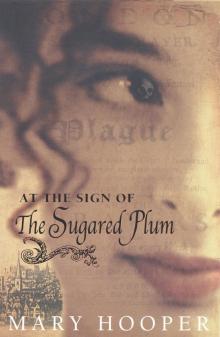 At the Sign of the Sugared Plum
At the Sign of the Sugared Plum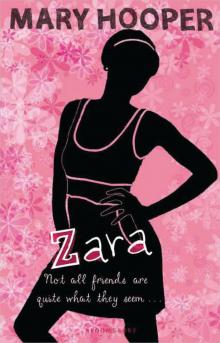 Zara
Zara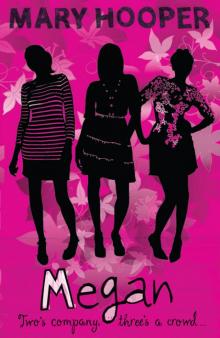 Megan 3
Megan 3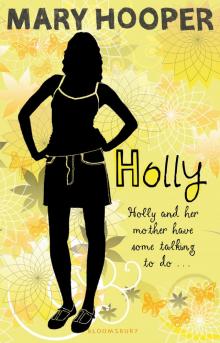 Holly
Holly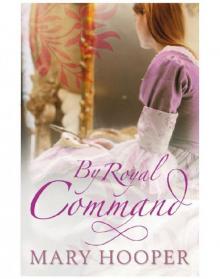 By Royal Command
By Royal Command Newes from the Dead
Newes from the Dead Amy
Amy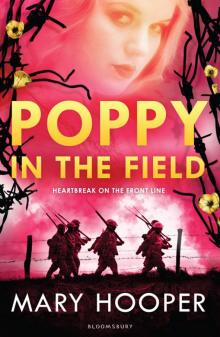 Poppy in the Field
Poppy in the Field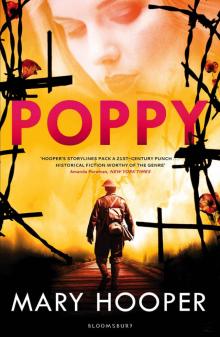 Poppy
Poppy Velvet
Velvet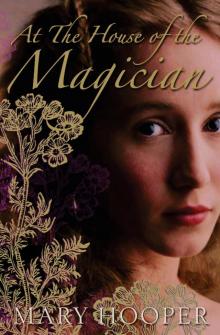 At the House of the Magician
At the House of the Magician The Remarkable Life and Times of Eliza Rose
The Remarkable Life and Times of Eliza Rose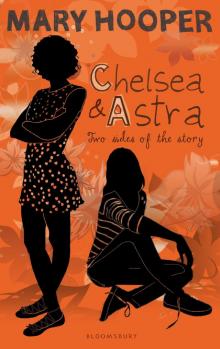 Chelsea and Astra
Chelsea and Astra The Betrayal
The Betrayal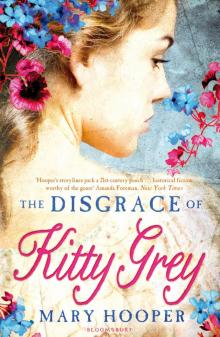 The Disgrace of Kitty Grey
The Disgrace of Kitty Grey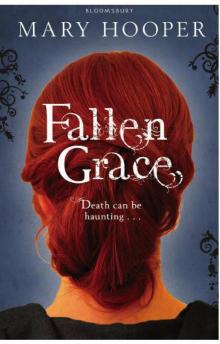 Fallen Grace
Fallen Grace